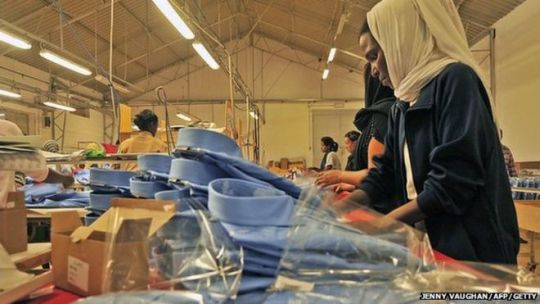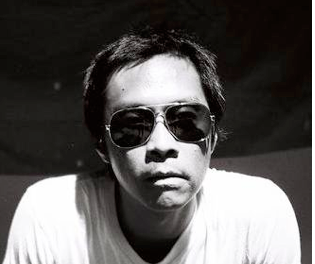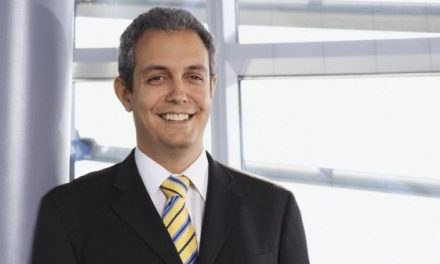Reading Time: 8 minutes‘This place is just like my hometown 20 or 30 years ago’ – Chinese entrepreneurs are investing in Africa, seizing market opportunities and creating their business with the same mindset that changed China’s economy within the last two to three decades. Chinese companies built with local partners what they learned to build in China: a global manufacturing powerhouse. Entrepreneurship and foreign investment based on business opportunities rather than aid programmes create jobs and thereby help to lift millions out of poverty. Irene Yuan Sun quit her job at McKinsey to research this topic as it seemed important to her. Only three years later she returned to McKinsey to lead a large-scale research project about Chinese investment in Africa. Irene is the author of ’The Next Factory of the World’, a book about how Chinese factories in Africa are transforming the future of the continent, which was presented at the Global Peter Drucker Forum. ‘The Dance of the Lions and Dragons’, the report she led at McKinsey about the Africa-China economic relationship was released a few months ago at the World Economic Forum in China.
Interview by Julia Weinzettl

What are the reasons for Chinese entrepreneurs to build factories in Africa?
Irene Yuan Sun: Over the last decade thousands of Chinese entrepreneurs have found their way to Africa. Their reasons are – what I call – the push and pull factors. In China itself different kinds of costs are rising, most significantly labour costs, which have been rising at more than ten percent per year for a decade now. Manufacturers in China are finding that their profitability levels are declining. That’s pushing them out of China. Now Africa – at the same time – is pulling in these entrepreneurs because of the outstanding market opportunities today. Manufacturers in Africa make some of the highest margins in the entire world. That’s due in some countries to labor costs that are significantly lower, for example, in Ethiopia. The other reason for the pull effect are market niches that have very little competition. A factory, in eastern Nigeria for example, has hardly any competitive imports or competition from other factories – at least yet. That´s why it´s possible to make very good businesses in these local market niches across the continent.
Are there also Chinese start-ups coming to Africa to build their business?
Irene Yuan Sun: Absolutely. There are many examples of successful Chinese start-ups in all kinds of industries, not only manufacturing. ‘StarTimes’ is one of my favorite examples. They acquired a TV-license in Rwanda, a small market, and built that into a business that now spans 30 countries and surpassed DStv as the largest pay-TV business in all of Africa by subscriber volume this year. In China this company has no customers. But in Africa they are a multinational business with subscribers in 30 countries.
How many Chinese entrepreneurs are conducting business in Africa at the moment?
Irene Yuan Sun: Right now there are more than 10,000 Chinese firms already operating in Africa. About a third of them – the biggest segment – are manufacturers. Three-quarters of those companies were not in Africa ten years ago. This is a phenomenon that is very much ‘in the now’ and growing in importance. There are the giants, state-owned enterprises like oil and gas or infrastructure companies, but the majority are successful small and medium-sized firms. Almost all of them – around 90 percent – are privately owned, market-driven enterprises.
Are these investments focussed on certain African countries?
Irene Yuan Sun: We find Chinese investment in all countries in Africa that have diplomatic relationships with China. This is around 52 countries out of the 54 countries in Africa. It changes a bit year by year but Chinese enterprises are operating everywhere on the continent.
Did digitisation have an impact in building those factories? Are they more advanced now that there has been a leap in technology?
Irene Yuan Sun: There is a strong technology transfer element happening with manufacturing investment from China to Africa. About half of the Chinese firms going into Africa are introducing a new product or service into their market and about a third of those companies are doing some sort of technology transfer. This leads to the modernization of production processes and the modernization of markets. Innovation is often thought of as being a tech topic, but for a lot of developing countries production process innovation and mass-oriented innovation in terms of lowering production costs, to make products affordable for more people, are critical for success.
From your point of view, if this development proceeds, what is the perspective for Africa or for certain African countries within the next ten years?
Irene Yuan Sun: One common refrain that I hear from Chinese entrepreneurs working in Africa today is that ‘this place is just like my hometown 20 or 30 years ago’. That’s very striking to me, because it indicates how quickly things can change for the better. I personally experienced as a child, growing up in China, a place where you had to have state-issued coupons to buy meat. Beverages like Coke and Sprite were luxury items. No one had a car. This was the reality in China only 25 years ago. The China of today looks completely different, former luxury items are commonplace now. I think that’s the opportunity and a very realistic scenario of what Africa can look like a generation from now. That if Africa industrializes, if it makes smart use of foreign investment from China and from other places, if it regulates these firms in the right way that helps them growing in a fashion compatible with social interest, we could absolutely be looking at multiple countries in Africa that have a large middle-class and that are participating in the global economy with firms of their own that are globally competitive and employing many people.
Protection of nature and industrialization usually don´t go along very well.
Irene Yuan Sun: Yes, that was my opinion as well. In the course of my research I met someone who turned that question around for me. I had the privilege of spending time with Dr. Richard Leakey, a famous conservationist and scientist. He discovered some of the most important fossils of early humans that we have today and he also is the head of the wildlife commission in Kenya, managing Kenya’s wildlife resources, which are considerable. Normally a question like yours is posed as ‘industrialization will be bad for the environment and so how do we deal with that?’. But Dr. Leakey said: ‘What happens to the environment if we don’t industrialize? If we don’t lift millions – in Kenya’s case – tens of millions of people out of poverty? What do you think they are doing to the environment in the mean time? Human development and environmental protection need to be managed hand in hand, because desperate humans are the worst thing that could happen to the environment.’ Obviously there is a lot of work to be done in terms of creating the right regulations, creating inspections, creating the right civil society in order to make sure that the industrial firms are respecting the air, the water and the amazing natural resources in Africa. Nevertheless I think to see industrialization as necessarily the enemy of conservation is short-sighted.
What is your personal motivation? Why did you take up this topic?
Irene Yuan Sun: I was born in China and was raised in the US. In high school I became interested in Africa and I studied African history in college. I wrote my undergraduate thesis about Kenyan history and then I moved to Africa with a classic Western-style attitude: ‘I’m a young person and I want to do good for the world!’. So I volunteered as a school teacher in a public school in a rural part of Namibia, in southwestern Africa. Later I joined McKinsey – another fairly Western type of institution. My work at McKinsey included trying to improve public health and other kinds of aid projects in Africa
Curiously I was never so interested in China until I realized that China was important for Africa. It was through experiences working in Africa, first as a teacher and then as a McKinsey consultant, that I ran into a lot of Chinese people.
They would come up to me and ask me what I was doing there in Chinese. When I asked them about their profession in turn, they would say: „Oh, I run this sort of business… or I’m building this road… or I’m building this stadium…“.
It eventually sunk in that what they were doing was really important for the future of this place that I cared so deeply about, which is Africa.
And that a lot of people had questions about what China is doing in Africa, but not a lot of people had access to the answers.
So I took it upon myself. I quit my job at McKinsey and went to studying this topic full-time. Literally the day that I quit McKinsey, I flew to Nigeria. In Nigeria I slept in a friend’s house and went around meeting as many Chinese entrepreneurs as I could.
It was a very boot-strapped endeavor. I looked into this amazing world of crazy entrepreneurs and the very inspiring workers who are working in these factories. The more personal stories I heard the more I realized that this development was a hugely important, interesting and exciting story at the human level that deserved to be told. That’s my journey.
How many people did you interview for your book?
Irene Yuan Sun: I ended up interviewing or visiting more than 50 Chinese factories in Africa in the course of writing this book. I also interviewed many of the people in and around those factories: government officials, union officials, but also the workers inside and entrepreneurs.
Life is so funny. I left McKinsey because I thought what China is doing in Africa is so important. Later I ended up going back to McKinsey for the same reason. The partners of McKinsey also started to realize that Chinese development was a big deal in Africa. About a year ago I went back to McKinsey to lead a large-scale research project about Chinese investment in Africa. We interviewed more than a thousand Chinese firms across Africa and created a large-scale data set. The report was released a few months ago at the World Economic Forum in China. That report has gotten great attention. Now we are helping clients to figure out how they can seize these opportunities of the China-Africa burgeoning relationship. McKinsey has seven offices in Africa now and a similar number of consultants in Africa as in China.
It’s funny how life comes full circle sometimes.
I think it’s awesome how the spark of one person, who is really passionate about something, can pull off a huge outcome.
Irene Yuan Sun: Yeah, I’ve been very very lucky. And I’ve had a tremendous amount of help along the way.
I think you put a lot of your heart in there. It’s incredibly rewarding for many people if somebody is courageous enough to follow his/her passion.
Irene Yuan Sun: Being at McKinsey is a very privileged job. Four years ago people thought I was crazy when I left. It was such a tiny niche. It’s been amazing to see how more and more people are waking up and realizing that there is an incredible shift happening in the world where China is moving from being a recipient of development aid and developmental advice to being a giver, an example for other countries. There are massive opportunities for all of us, whether it’s Africa or China itself, whether it’s business or government—also for the world. That this is the moment we live in. It’s been amazing to see people of different institutions and different backgrounds waking up to this realization.
Podcast Harvard Business Review
McKinsey Report – Chinese economic engagement in Africa, June 2017
About:
Irene Yuan Sun is a leading expert on the Africa-China economic relationship. She is the author of The Next Factory of the World, a book about Chinese investment in Africa and the opportunity it affords for Africa to industrialize (Harvard Business Review Press, November 2017). The book was shortlisted for the Financial Times’ Bracken Bower Prize for the best business book proposal.
Irene also co-leads McKinsey & Company’s research and client work on Africa-China business and economic development. She is the lead author of a major McKinsey report on this topic entitled Dance of the Lions & Dragons, which created the largest fact base to date about the Africa-China relationship. The findings from this report have been featured in the Economist, the New African, CGTN (formerly known as CCTV), and Xinhua. Irene is a graduate of Harvard College, Harvard Business School, and Harvard Kennedy School.






